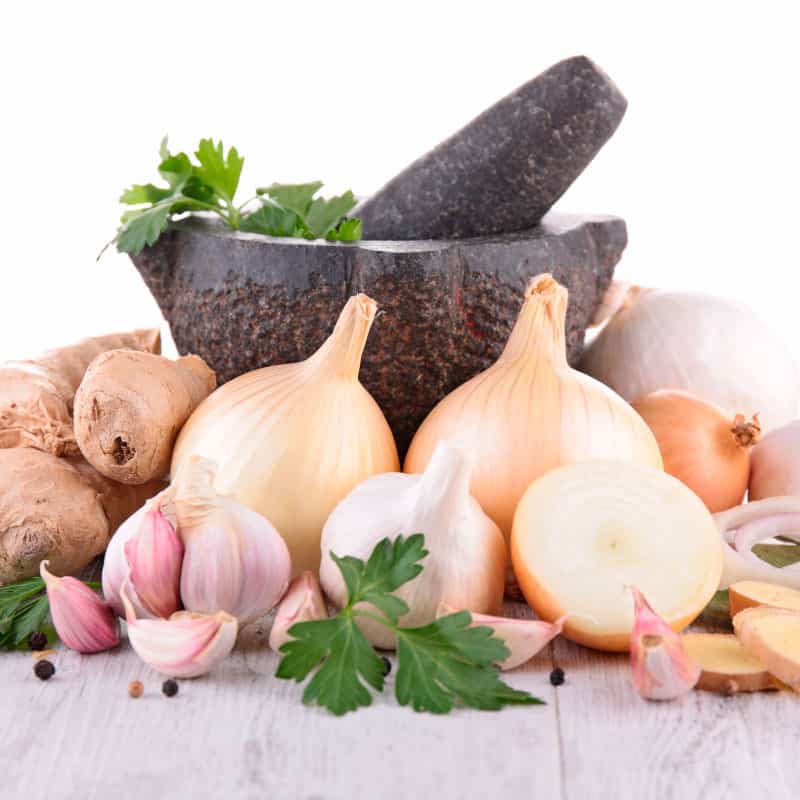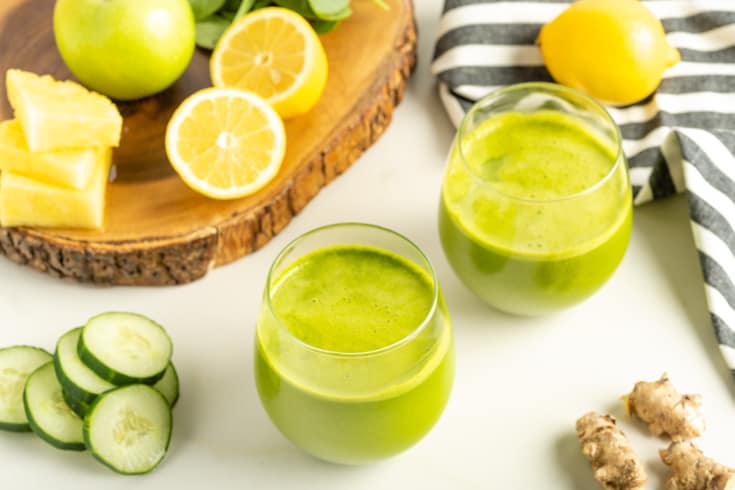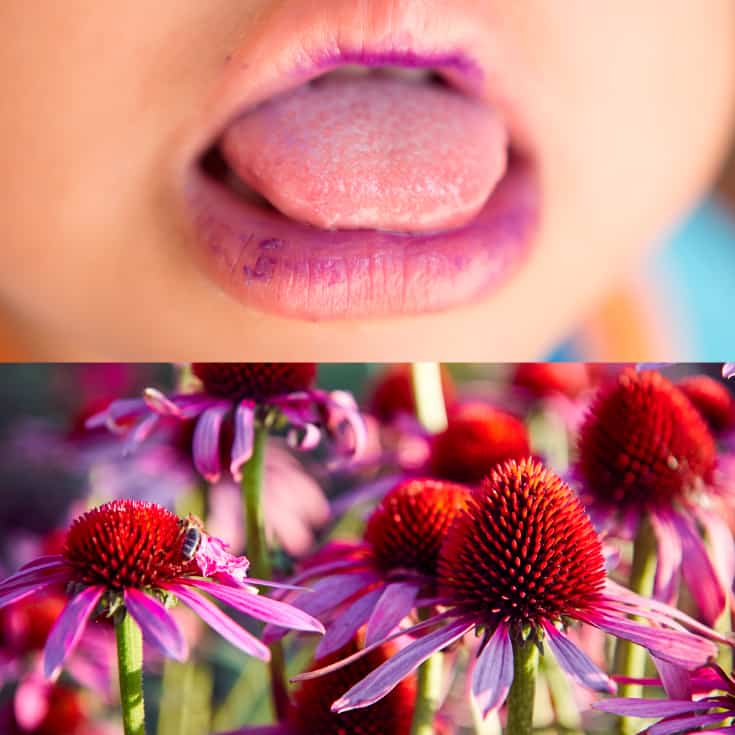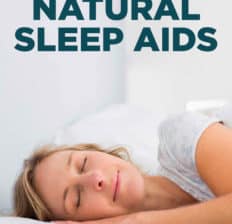This Dr. Axe content is medically reviewed or fact checked to ensure factually accurate information.
With strict editorial sourcing guidelines, we only link to academic research institutions, reputable media sites and, when research is available, medically peer-reviewed studies. Note that the numbers in parentheses (1, 2, etc.) are clickable links to these studies.
The information in our articles is NOT intended to replace a one-on-one relationship with a qualified health care professional and is not intended as medical advice.
This article is based on scientific evidence, written by experts and fact checked by our trained editorial staff. Note that the numbers in parentheses (1, 2, etc.) are clickable links to medically peer-reviewed studies.
Our team includes licensed nutritionists and dietitians, certified health education specialists, as well as certified strength and conditioning specialists, personal trainers and corrective exercise specialists. Our team aims to be not only thorough with its research, but also objective and unbiased.
The information in our articles is NOT intended to replace a one-on-one relationship with a qualified health care professional and is not intended as medical advice.
17 Natural Sleep Aids that Really Work
July 7, 2025
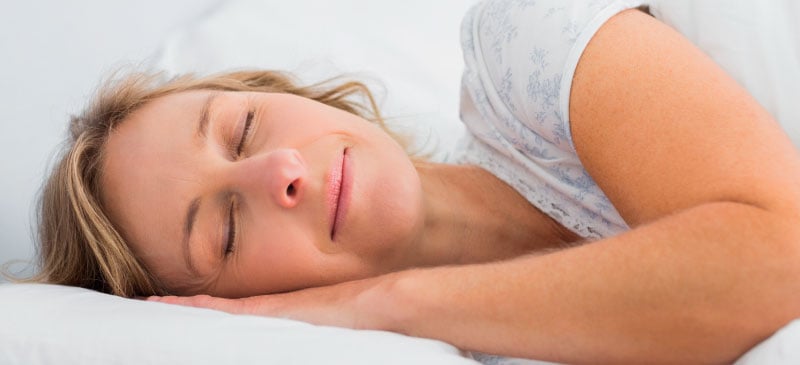
Our sleep is precious time that allows our bodies to heal and rejuvenate, and without enough sleep, our health suffers. That means we must find ways to get proper rest. Unfortunately, many people either can’t sleep (which can also happen during jet lag) or don’t get enough sleep, which is where natural sleep aids come in.
The amount of sleep needed each night varies, but for adults, getting at least seven hours every night is crucial to having a healthy mind and body. When we don’t get enough sleep, our bodies aren’t the only things that suffer.
The Centers for Disease Control and Prevention reports that tens of millions of people have trouble with focus due to lack of sleep, and the National Highway Traffic Safety Administration relays that that millions nod off while driving.
Luckily, this problem doesn’t have to continue. It’s all about making some lifestyle changes, like using the following safe, natural sleep aid options and focusing on getting the sleep you need in order to stay refreshed, alert and at your absolute best.
We have a natural sleep-wake cycle called circadian rhythm. By being in sync with that rhythm, we can easily improve our sleep.
A regular sleep/wake pattern helps you feel refreshed and ready for your day.
Having good sleep hygiene is crucial, such as avoiding stimulants like too much coffee to prevent caffeine overdose, and we’ve all been told to get those electronics far from the bedroom, both for better sleep and to avoid nomophobia.
Thankfully, good sleep hygiene combined with natural sleep aids can make all the difference in getting some body-craving restful sleep. Here are some of the best natural sleep aids around:
1. Sleep-promoting foods
It’s a well-known fact that having a heavy meal just before bed can cause you to have a poor night of rest, but did you know that there are some foods that could help you sleep better?
That doesn’t mean you need to add calories necessarily or eat a huge meal right before bed, but it could mean that you can incorporate some of these foods into your dinner or as a small after-dinner snack.
Probably the most commonly known characteristic that can help through food is tryptophan. Yes, that sleepiness from the Thanksgiving turkey is no joke.
Tryptophan is an amino acid that can help the brain get into a relaxed state, similar to serotonin and melatonin. You can obtain tryptophan and serotonin from carbohydrates, particularly 100 percent whole grain oats, brown rice, corn or quinoa.
A study published in Sports Medicine out of France was conducted to help better understand ways to improve the sleep of elite soccer players given their chaotic schedules, late-night games and need for recovery through a good night of sleep.
The study found that by consuming carbohydrates, such as honey and whole grain bread, and some forms of protein, especially those that contain serotonin-producing tryptophan like turkey, nuts and seeds, it helped promote restorative sleep.
Even tryptophan-filled tart cherry juice, which also contains healing properties like antioxidants, could be a great natural sleep aid option.
2. Calcium
Did you know that calcium has an effect on our sleep cycle? It’s true.
According to research, calcium levels are at their highest during our deep rapid eye movement (REM) sleep periods. What this means is that if you never get to the REM sleep phase or if it’s limited, it could be related to a calcium deficiency.
Researchers have indicated that calcium is important because it helps the cells in the brain use the tryptophan to create melatonin, a natural body-producing sleep aid.
3. Magnesium
If you have trouble sleeping, it could be due to a magnesium deficiency, and you may benefit from more magnesium-rich foods or even a magnesium supplement.
Studies have shown that higher magnesium levels can help induce a deeper sleep, and this is especially true when taken together with calcium for better absorption.
Foods like goat’s milk kefir, spinach, pumpkin seeds and even dark chocolate can help work as natural sleep aids since they’re loaded with magnesium.
Here are a few snacks to consume for getting a good night of sleep:
- Half a banana with a few almonds
- Crackers with almond butter
- Gluten-free oatmeal with honey and dark cherries
- Small Ezekiel wrap with turkey and cranberries
- Small glass of warm goat’s milk kefir with turmeric and a dash of cinnamon
- Chamomile, passion flower and valerian tea
- Small glass of tart cherry juice
4. Essential oils
It’s no secret that using essential oils is a natural method for just about anything you can think of, and sleep is no different.
Prescription medications can cause numerous side effects and make you feel jet-lagged upon waking, among other negative side effects. Essential oils for sleep, on the other hand, don’t cause these adverse reactions.
A study published in Complementary Therapies in Clinical Practice was conducted with cancer patients, a common group that has serious issues with sleeping well, to better understand whether aromatherapy using essential oils could help provide some much-needed healing shut-eye.
Aroma sticks were given to patients over a 13-week period.
Of the participants, 94 percent reported using the aroma sticks with 92 percent reporting that they would continue to use them. Bergamot oil and lavender oil, in addition to sandalwood, frankincense and mandarin, were combined to create the useful sleep-inducing blend, showcasing the ability of essential oils to work as natural sleep aids.

5. Passion flower
When we have anxiety, it can greatly affect how we sleep because you just cannot seem to turn the brain off, especially while you’re trying to rest. Passion flower can provide the calming effect needed to help stop that vicious circle of thought.
Clinical trials have shown that passion flower can reduce anxiety as effectively as the prescribed drug known as benzodiazepine oxazepam. A four-week, double-blind study of patients with generalized anxiety disorder compared passion flower to the common anti-anxiety drug.
While the oxazepam worked a little faster, both were the same in terms of effectiveness. However, the passion flower did not cause problems with job performance, such drowsiness while on the job, unlike the oxazepam.
This shows that passion flower is one of the most powerful anti-anxiety natural sleep aids that doesn’t cause lingering tiredness the next day.
6. Valerian root
Valerian root contains many healing properties, in particular for relaxation and sedative effects. It’s often found in combination with chamomile in a tea.
By increasing the amount of gamma aminobutyric acid (GABA), it helps calm the nerve cells in the brain, resulting in a calming effect. GABA works by blocking brain signals that cause anxiety and the ongoing trickle effect that can come from it.
This calming effect makes it a favorite natural remedy for anxiety too.
7. St. John’s wort
Depression is a common characteristic that can lead to lack of sleep. St John’s wort may be able to help.
Studies have indicated that chemicals, such as hyperforin and adhyperforin, found in St. John’s wort act as little messengers in the brain that drive mood and work as powerful antidepressants.
The National Sleep Foundation has reported that insomnia is common among those who are depressed and noted that people with insomnia have a much higher risk of becoming depressed.
Research from the Department of Psychology at the University of North Texas showed that depression may affect many aspects of sleep, from getting to sleep to staying asleep.
By treating depression using St. John’s wort, you may be able to find that restful sleep your body and mind longs for.
8. Melatonin
Melatonin is a hormone that regulates sleep-wake cycles. Supplementing with melatonin can help those with insomnia or jet lag by signaling to your body that it’s time to sleep.
A 2022 systematic review and meta-analysis of randomized, controlled trials determined that “melatonin has positive effects on sleep quality as assessed by the Pittsburgh Sleep Quality Index.” Several other studies have found similar results, which is why it’s one of the most popular natural sleep aids around.
However, in recent years, experts have warned about melatonin overdose and recommend using it as a short-term natural sleep aid, not a long-term solution.
9. Lavender
Lavender is well-known for its calming properties. Using lavender essential oil or taking it in supplement form can help reduce anxiety and improve sleep quality.
In fact, a randomized, controlled trial published in the Journal of Alternative and Complementary Medicine sought to compare the effects of lavender and sleep hygiene practices versus sleep hygiene alone on sleep quality. The trial was conducted on 79 college students with self-reported sleep troubles.
The subjects were split into two groups, with both practicing strong sleep hygiene and one of the groups wearing an inhalation chest patch with lavender oil and the other a placebo chest patch. The study took place over five days, followed by a two-week follow-up.
What did the researchers find? “Lavender and sleep hygiene together, and sleep hygiene alone to a lesser degree, improved sleep quality for college students with self-reported sleep issues, with an effect remaining at follow-up.”
10. Glycine
Glycine is an amino acid that can improve sleep quality by lowering body temperature and calming the nervous system. As such, taking glycine before bed can help you fall asleep faster and enjoy deeper sleep.
Researchers even have noted that “glycine also has the property to enhance the quality of sleep and neurological functions,” and literature published in 2024 confirmed that many studies have showcased how glycine effectively works as a natural sleep aid.
11. Ginkgo biloba
Ginkgo biloba is an herb that can enhance sleep by reducing stress and promoting relaxation. It’s especially helpful for those who have trouble falling asleep due to anxiety.
In one human trial, ginkgo biloba seemed to have beneficial effects on sleep efficiency measures and subjective sleep quality reports, and it was well-tolerated by subjects.
12. L-theanine
L-theanine, found in tea leaves, promotes relaxation and helps reduce stress without causing drowsiness. Taking L-theanine can improve sleep quality by promoting a state of calm before bedtime.
A 2019 randomized, controlled trial found that four weeks of L-theanine supplementation reduced sleep latency, sleep disturbance and use of sleep medications in subjects.
In addition to the natural sleep aid benefits, L-theanine also promoted mental health and helped with cognitive impairments.
13. Tryptophan
Tryptophan is an essential amino acid that your body uses to produce serotonin and melatonin. Supplementing with tryptophan can help regulate your sleep-wake cycle and improve sleep quality.
Going all the way back to 1982, researchers have said that “the weight of evidence indicates that L-tryptophan in doses of 1 g or more produces an increase in rated subjective sleepiness and a decrease in sleep latency (time to sleep).” It seems to be an especially effective natural sleep aid in subjects with mild insomnia and helps people who haven’t displayed sleep issues sleep longer.
A 2021 systematic review, meta-analysis and meta-regression confirmed such findings, relaying that supplementing with at least one gram of tryptophan “can aid in improving sleep.”
14. Chamomile
Chamomile is a popular herb known for its calming effects. Drinking chamomile tea or taking it as a supplement can help you relax and fall asleep more easily.
A 2015 study had 80 Taiwanese postnatal women with poor sleep quality split into an experimental group who drank chamomile tea for two weeks or a control group.
The chamomile group “demonstrated significantly lower scores of physical-symptoms-related sleep inefficiency” and lower symptoms of depression. Both groups did have similar results after four weeks, however, leading the researchers to note that “the positive effects of chamomile tea were limited to the immediate term.”
15. Hops
Hops, often associated with brewing beer, have sedative properties. Taking hops as a supplement can help reduce anxiety and promote restful sleep.
A 2012 study examined the effects of hops on healthy female nurses working rotating and/or night shifts, assessing their sleep and chronobiological parameters after drinking non-alcoholic beer containing hops with dinner for two weeks.
Sleep latency diminished and anxiety decreased with the addition of the non-alcoholic beer containing hops.
This led the study authors to conclude that “moderate consumption of non-alcoholic beer will favour night-time rest, due in particular to its hop components, in addition to its other confirmed benefits for the organism.”
16. Ginseng
Ginseng is an adaptogen that helps the body manage stress. While it is more commonly known for its energy-boosting effects, certain types of ginseng can help improve sleep by regulating stress levels.
For instance, fermented red ginseng and Panax ginseng have been shown to work as natural sleep aids in humans and animals.
17. 5-hydroxytryptophan (5-HTP)
5-HTP is a precursor to serotonin, a neurotransmitter that plays a key role in regulating sleep. Supplementing with 5-HTP can improve sleep quality and duration by increasing serotonin and melatonin levels.
A 2024 randomized, controlled trial had 30 older adults in Singapore randomly assigned to take 100 milligrams of 5-HTP or not take it, with sleep quality assessed every four weeks for 12 weeks.
Supplementing with this natural sleep aid “showed an overall favorable effect on certain sleep quality components and an increase in serum serotonin concentration.”
As such, the study authors concluded that “5-HTP supplementation can improve certain sleep quality components in older adults and this benefit was more prominently observed in poor sleepers. 5-HTP was also able to improve the gut microbiota composition in poor sleepers.”
Risks and side effects
Always make sure you start with small amounts of any new food, herb or essential oil, as different people have different reactions to certain foods. This includes natural sleep aids.
If you notice anything unusually, stop the treatment immediately.
It’s also advised to avoid sleeping pills, as people can become dependent upon them and continue to struggle to get natural sleep, among a host of other potential side effects.
According to the Sleep Foundation, sleeping pills can cause:
- Burning or tingling sensation in the hands, arms, feet or legs
- Change in appetite
- Constipation
- Diarrhea
- Dizziness or lightheadedness
- Drowsiness during the day
- Dry mouth or throat
- Gas
- Headache
- Heartburn
- Nausea
- Mental impairment the following day
- Difficulty paying attention or remembering things
- Stomach pain
- Impaired balance
- Uncontrollable shaking
- Weird dreams or nightmares
- Weakness
This is why natural sleep aids may be better options.
Also, if you have been on prescription medication for sleep or any other medication, please consult your doctor first before adding natural sleep aids to your routine.
Frequently asked questions
What is the best natural thing to help you sleep?
Melatonin is widely considered the best natural aid for sleep. It’s a hormone your body produces in response to darkness and helps regulate your sleep-wake cycle. Supplemental melatonin is often used for jet lag, shift work sleep disorder and occasional insomnia.
Other top natural options include:
- Magnesium supports muscle relaxation and calms the nervous system.
- Valerian root is an herb used traditionally to reduce the time it takes to fall asleep.
- Chamomile tea contains apigenin, a compound that may promote sleepiness.
- Lavender aromatherapy or supplements may improve sleep quality.
Are natural sleep aids effective?
Yes, many natural sleep aids can be effective, especially for mild or occasional sleep issues. Their effectiveness depends on the cause of your sleep difficulty and the specific remedy used.
For example:
- Melatonin is effective for circadian rhythm disruptions.
- Valerian root may reduce time to fall asleep and improve sleep quality.
- Magnesium has been shown to improve insomnia, especially in older adults.
However, results vary from person to person, and natural sleep aids are typically less potent than prescription medications.
What will knock me out for sleep?
If you’re looking for something strong that “knocks you out,” natural options may not work instantly or with that level of intensity. However, a combination of melatonin, magnesium and calming herbs (like valerian or passion flower) can be quite effective when taken 30-60 minutes before bed.
If you want stronger fast-acting effects, people often turn to:
- Over-the-counter (OTC) sleep aids like diphenhydramine (Benadryl) or doxylamine (Unisom), which are sedating antihistamines.
- Prescription medications like zolpidem (Ambien) or temazepam, though these have more risks.
What is the best natural supplement to help sleep?
Some of the top natural sleep aids include:
- Melatonin – best for sleep onset issues and circadian rhythm regulation.
- Magnesium glycinate or citrate – supports nervous system relaxation.
- Valerian root – may improve deep sleep and reduce sleep latency.
- L-theanine – found in green tea, promotes relaxation without sedation.
- GABA – an inhibitory neurotransmitter that may help calm an overactive brain.
Often, combination supplements with several of these ingredients are more effective than single-ingredient ones.
What do Native Americans use for sleep remedies?
Traditional Native American sleep remedies often include:
- Hops – calming and sedative properties.
- California poppy – used for insomnia and anxiety.
- Skullcap – a nervine herb that soothes the nervous system.
- Chamomile – for its relaxing effects.
- Lavender and sage smudging – for cleansing and calming before sleep.
These remedies were often used in teas, tinctures or aromatherapy practices as part of holistic wellness rituals.
Are natural sleep aids safer than prescription sleep aids?
Generally, yes, natural sleep aids are considered safer, especially for short-term or occasional use. They’re less likely to cause dependence, withdrawal or severe side effects.
However, “natural” doesn’t always mean risk-free. For example:
- High doses of melatonin can cause grogginess, vivid dreams or hormonal disruption.
- Valerian can interact with medications or cause headaches or dizziness.
Always check for interactions with medications or health conditions, and consult a healthcare provider if unsure.
Are over-the-counter sleep aids safe?
OTC sleep aids are safe for occasional use but come with caveats:
- Most OTC sleep aids (e.g., Benadryl, Unisom) contain sedating antihistamines like diphenhydramine or doxylamine, which can cause next-day drowsiness, dry mouth, constipation and confusion, especially in older adults.
- They are not meant for long-term use, as tolerance builds quickly and they don’t improve sleep quality over time.
- Some OTC products combine sleep aids with pain relievers or cold medicine, which can increase health risks if used improperly.
For chronic sleep issues, natural aids or lifestyle changes are usually better long-term solutions.
Final thoughts on natural sleep aids
Sleep is a crucial part of our health and healing. Take it seriously, and seek out the help of a functional medicine practitioner if you can’t get your sleep under control.
Stay away from synthetics and stimulants, and try the following natural sleep aids instead:
- Tryptophan and serotonin foods
- Calcium
- Magnesium
- Essential oils
- Passion flower
- Valerian root
- St. John’s wort
It also helps to practice good sleep hygiene to prevent revenge bedtime procrastination, and you can try pink, brown, green or white noise machines to help with sleep, along with natural sleep aids.
In addition, consider using a journal to track the results so you can better determine what works for you, and make sure you get a good night’s sleep every night. Your health depends on it.



